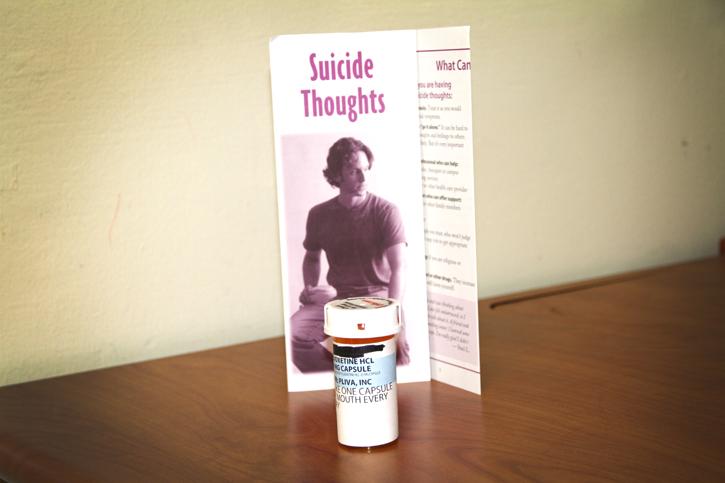“I failed.” “I will never graduate.” “I will never get a job.” “I will never be good enough.”
Real-life issues, such as doing poorly on a test, can send people with major depressive disorder (MDD), or depression, into a cycle of negative thought that may lead to self-harm.
Every morning, students around the world wake up suffering from MDD and face a minefield of triggers, including a stress-filled days and bad breakups, that could send them spiraling into depression.
But depression is often misunderstood, laughed at even.
Several students found a recent demonstration in a psychology class at American River College regarding the spiraling effects of depressive thought humorous, in a sense, shaming the students who do live with MDD.
Those who do not suffer from MDD can have a hard time understanding, or even noticing people with depression, because it is an illness that manifests internally.
Students can’t remain ignorant of those suffering with major depressive disorder.
They need to be more aware of the symptoms of this dangerous disorder and be in a better position to help those afflicted with it.
“Major depressive disorder affects approximately 14.8 million American adults, or about 6.7 percent of the U.S. population age 18 and older in a given year,” says the National Institute of Mental Health. According to the National Alliance on Mental Illness, “31 percent of students are depressed to the point that they have trouble functioning.”
Real-life triggers for depressive people are often compounded in students.
“College students are 12 times as likely to commit suicide as any other person,” said ARC psychology professor Peg Scott. “This is real.”
There are several resources for students on campus who suffer from symptoms of depression.
Students can go to the health center for informational pamphlets, but they can also visit when they’re feel depressive symptoms.
“We don’t have a doctor,” said Fran Kofcheski, a nurse at the student health center, “but (the nurses) can talk to students about what’s going on.”
For students who are having depressive symptoms, said Kofcheski, “we can evaluate if we need to call 911 if they really are in crisis, or if we can decide whether they need to go talk to counseling.”
Life is Worth the Walk, a campus club that tries raise awareness of those suffering with depression and gives them resources to help combat the illness, hosts a wide range of activities.
Anyone interested can check the ARC clubs website or email Peg Scott at scottm@arc.losrios.edu.
Even students who don’t have depression probably have someone in their lives who does have symptoms, which include sleep disorders, feelings of hopelessness, abnormal eating habits, reckless behavior, loss of energy and irritability.
This list is not exhaustive and of course, not everyone with these symptoms has depression, but those with multiple symptoms should consult a professional.
It is important that everyone be educated on how to spot the signs of depression.
It may just save a life.
See http://www.helpguide.org for more information about the symptoms of depression.














